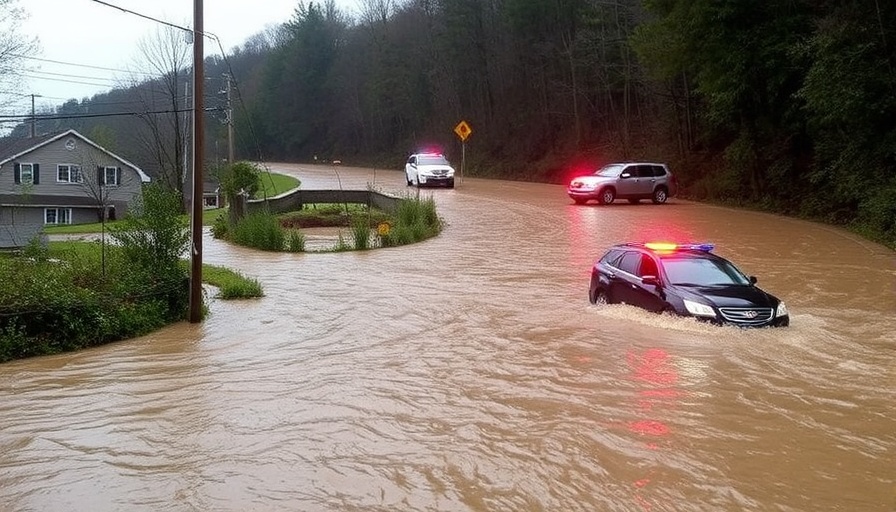
Trump Administration's Bold Move in Alaska: What it Means for Residents
The Trump administration’s recent decision to open up millions of acres in Alaska to drilling and mining marks a controversial shift in the nation’s energy policies. With the announcement made by Interior Secretary Doug Burgum, the reversal of President Biden's ban on drilling in the 23-million-acre National Petroleum Reserve-Alaska (NPR-A) has raised alarms among environmentalists and Indigenous communities alike. This policy change aims to prioritize energy production over the protection of vital ecosystems.
Why Drilling in Alaska Matters
Alaska is not just a state rich in resources; it is a vital habitat for many species and a critical area for Indigenous communities. Recent statements from government officials, including Energy Secretary Chris Wright, emphasized that oil production is essential for Alaska’s economy, accounting for over 90% of the state’s general revenue. The argument that “unleashing American energy” could drive economic prosperity seems compelling. Nevertheless, it raises significant social and environmental concerns that deserve scrutiny.
The Ecological Impact: A Cause for Alarm
Environmental groups have been quick to voice their concerns regarding the ecological ramifications of drilling in such a sensitive area. Kristen Miller, executive director of the Alaska Wilderness League, painted a stark picture, stating, “This move threatens wildlife, local communities, and our climate.” Many species, including caribou and migratory birds, depend on this pristine habitat, which has already been uniquely impacted by climate change. For communities relying on subsistence hunting and fishing, the stakes couldn't be higher.
Community Resonance: Voices from the Ground
For Indigenous populations, the rollback of these protections feels particularly like a betrayal. Local voices are rising against what they deem a “destructive” approach to resource management. The lands in question are not just government property; they are home to those whose cultures and livelihoods intimately tie them to the land. Many fear that their way of life is under threat as the government sells off the public land to large corporations.
Historical Context: The Ever-Repeating Cycle
America’s relationship with its natural resources has been fraught with contention. The “drill, baby, drill” mentality can be traced back over decades, where economic benefits are often prioritized at the expense of environmental health. The current situation in Alaska echoes previous trends seen in other parts of the country, where pristine lands have been industrialized, often leading to long-term ecological consequences.
Looking Forward: The Future of Energy Policy
As discussions intensify around America’s energy strategy, the upcoming years will be pivotal. The narrative surrounding dependence on fossil fuels versus the urgent need for sustainable practices continues to grow louder. Will the nation turn its back on crucial climate policies in favor of short-term economic gains? Or will it embrace cleaner, sustainable energy solutions that consider both ecology and economy?
What This Means for Investors and Homebuyers
For homebuyers and property investors in markets like Dumfries, this news could have broader implications. As ecological concerns heighten, areas near drilling sites might see fluctuating property values and changing community dynamics. Individual choices made now regarding investments can align with long-term sustainability goals, promoting homes that respect both environmental and community well-being.
As we stand at the crossroads of energy policy and ecological conservation, the choices made by our leaders will affect not only the stunning wilderness of Alaska but also the livelihood and health of communities throughout the nation. Stay informed, as these discussions directly impact us all.
Take Action: Make Your Voice Heard!
As interested citizens, it is crucial to advocate for our public lands and their resources. Consider reaching out to your local representatives to express your views on this issue and support policies that promote sustainable practices.
 Add Row
Add Row  Add
Add 





 Add Row
Add Row  Add
Add 








Write A Comment